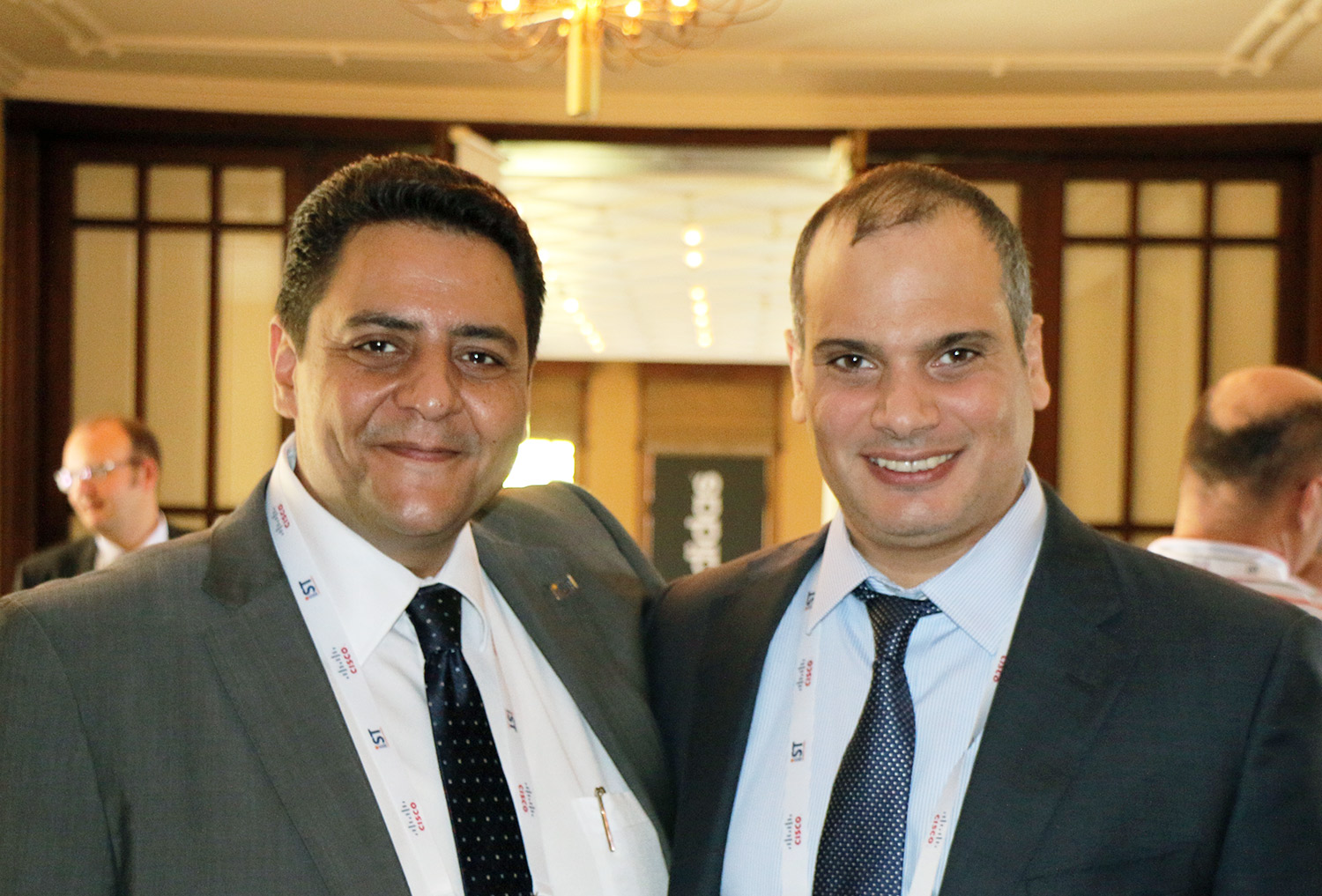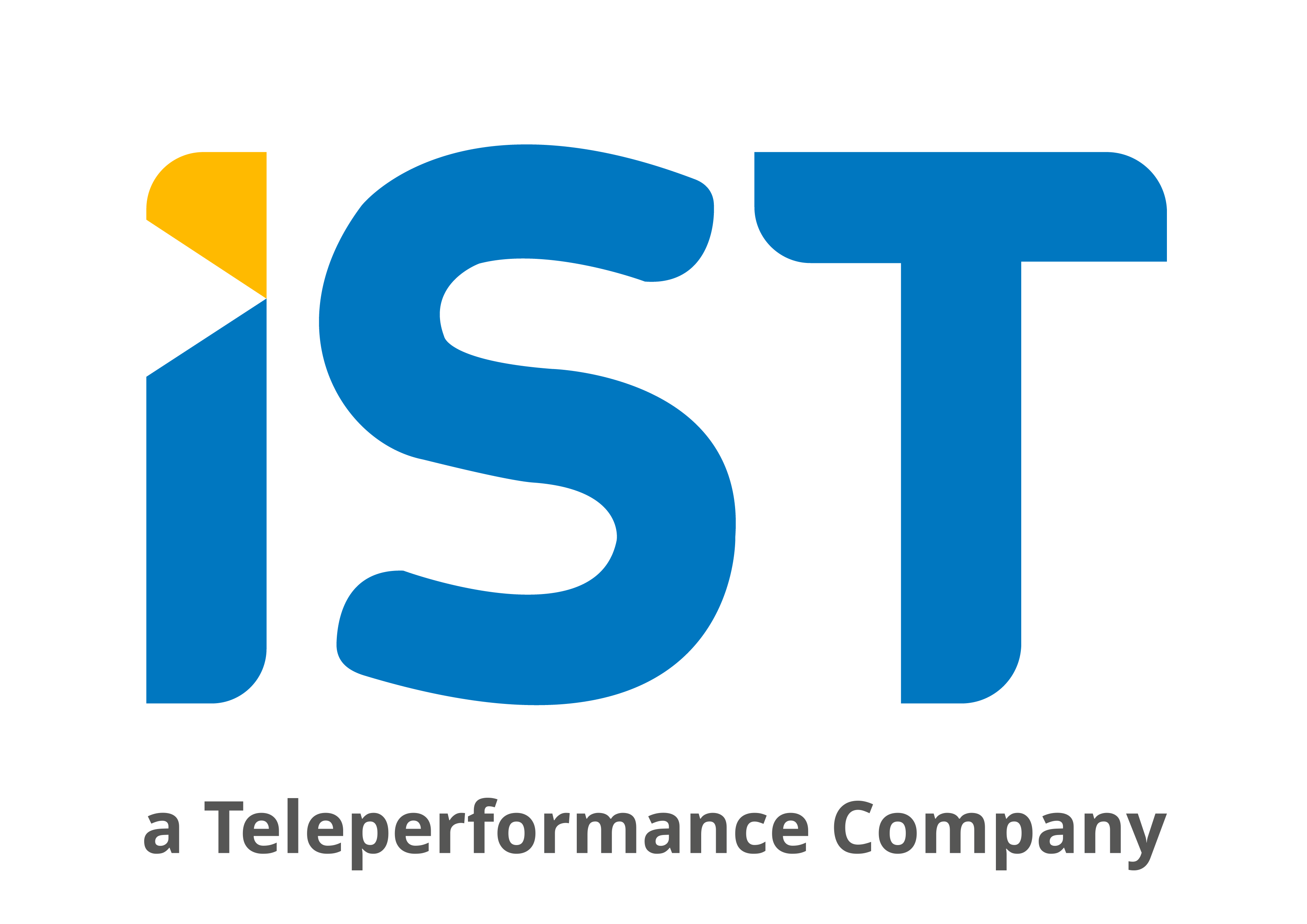
Ahmed Zaghmouri (right) and Samer Shafeek (left) at the Istanbul IST and Cisco Customer Experience Road Show.
Ahmed Zaghmouri recently took time to speak with IST and we learn what he does and why the Cisco Contact Center ‘platform’ is the best in the industry.
Ahmed is the Cisco Contact Center Business Development Manager covering the Middle East and Africa and he is based out of the Dubai office. His day to day activities include helping the field team engage with customers, creating joint business development plans and working with Marketing Managers across his region to formulate a strategic marketing plans and ensuring they are executed effectively.
How do you view Customer Experience, where is it going in the next 3-5 years, so basically, if our customers had a pot of money, where should it be invested?
That’s a good question, actually. I think we are living at a very early stage of the customer experience maturity in our region. We still tend to think of this from the context of the customer service perspective. I do believe there is a big difference between customer experience and customer service. Customer experience in general tends to span multiple functions in departments. It needs a different way of thinking at the end-customer level. They need to think in a cross-functional way. So over the next few years we will see more organisations embracing the value of thinking how the customer experience could help them. They will spend more time, effort, on building the strategy and the right framework to implement customer experience that reflects the business objectives.
Are you seeing a trend of Customer Experience Budget Setters moving away from IT to other functions within the organization?
I agree a hundred per cent. Actually, with the nature of customer experience, which is a cross-functional initiative within the organisation, it’s very hard to follow the old model where we have a specific budget allocated to a specific initiative. So, we are seeing this moving from an IT perspective, even sometimes from a line business perspective, to someone chartered with the goal to take this customer experience to the next level. So the budget part, I have seen it set within the line of business – definitely outside of IT – within the CX operations, if you will – the likes of the Customer Digitization Officer, the Customer Experience Officer, or the Customer Experience Executive.
Is this shift of budget setting happening in the Middle East too?
I’m seeing good examples within the Middle East, actually, especially the large telcos, the large banks and untilities, most of these larger customers have already appointed someone responsible for either this transformation or the customer experience initiative in one way or another. And these people have been empowered within the organisation, to be in a position to execute and implement the customer experience – the budget has been pushed to their side, if you will.
You talk about the Cisco (Contact Center) platform and how Cisco has provided a technology platform to vendors to build on. Can you elaborate on what you mean by a Cisco Contact Center platform?
Well, a few years ago when we started this customer experience discussion, we knew how customer experience would help customers. But we learned from early implementations, it’s very unlikely that you could have a single vendor who can build an end-to-end technology that addresses all the aspects of the customer experience because customer experience will have marketing functions, customised customer service, it could be on the sales, it could be on the sub line chains – the customer experience is across all the functions that we do as an organisation and most of those functions they use their own technologies in one way or another.
If you check the marketing team, they have their own tools, and they tend to buy those tools from specific enterprise software vendors, the likes Saleforce, Oracle etc. The same applies to each and every function, so there is no single vendor who could really claim that they have a solution that addresses the customer experience requirement across all the functions.
We realized this very early and we said if we want to build an end-to-end customer experience then the only way to deliver this from a technology perspective is to build a platform, and a unique characteristic of that platform, is it allows different pieces from different technology vendors to easily integrate with each other because the entire system has been built in a way to be API first and this helps orchestrate the customer experience-related activities and jobs across the different functions within the organisation. And we strongly believe at Cisco, moving forward on this platform will continue to evolve at different levels, bringing in new technology from new innovative providers. The role of the system integrator will do the core job of integrating many of those different technologies, into one customized CX contact center for the customer.
And how does this approach differ from your competitors?
We have different sets of competitors in the customer experience market. Some of them, they come from the legacy Contact Center space; some of them, come from the CRM space, if you will; and yes, some of them are very niche, they focus on specific areas of the customer experience. What I see on the Contact Center side is most of them they continue to think of the customer experience from the lenses of the Contact Center, which eventually will limit the technology output for those vendors. Some of them tend to think of a customer experience as one suite of technology apps, which we strongly believe won’t be the case because you need to integrate, as I said earlier multiple technologies from different functions. And, I think some of them have focused specifically in very niche areas.
The major difference, when it comes to Cisco, is we looked into this holistically. We know that there are multiple aspects for this customer experience. It could be the digital customer experience, the physical customer experience, feeding different functions and different departments. And we thought if we managed to build a solution on a platform that could help the customer to integrate those pieces, we will deliver a solution that will address most of our customer requirements. So, I always say our approach on how technology is integrated is the fundamental difference between Cisco and the rest of the competitors in the market.
So, just to clarify, the benefits to the end customer, to the people who are paying for your products, is they get the best of everything, from specialized providers, paying for only what they need, nothing more.
I agree.
And they can always grow, they can always start small and expand so when funds allow they can expand…
And they can unplug some of the pieces they are not happy with and they replace them with the right pieces, if you will, and this is what we expect as customers – they immerse themselves into this journey of customer experience. They will recognize down the road that there are some bad decisions made so we wanted to give them the flexibility to change, to fix, to modify, based on their needs.
Just thinking about the last five years, back in 2012, what was customer experience back then like?
Well, I’m not sure if we used the term customer experience at that point of time but what I can assure you generally, the awareness and the way the organisations and enterprises – they started to consider customer experience as a way to differentiate from the competition. It’s certainly growing so there is an improving awareness of the value of the customer experience as a new way to compete and differentiate. And also, there is an increasing awareness of the complexity in general around this topic and how to deliver it from a technological perspective. I’m also seeing, in some segments of the market, people are ready with plans and ready to invest in these technologies which will improve customer experience.
So, I’m very happy with the progress in the Middle East. A few years ago, it was very hard to find anyone who believed that customer service and customer experience could be differentiator – that it could be a strategic weapon you use as a business to differentiate, to justify, your premium and to compete effectively as well, especially in countries or places like Dubai – I think this is one area where we see how they leverage the customer service and customer experience as a way to differentiate their businesses at public level, government and semi-government institutions and the private sector as well.
Thank you for very much for your time and speaking with IST.
Please follow Ahmed Zaghmouri on Twitter: @ahmedzaghmouri
Visit IST at www.istnetworks.com
Source: IST Blogs
Recent Posts

